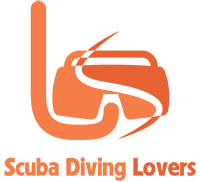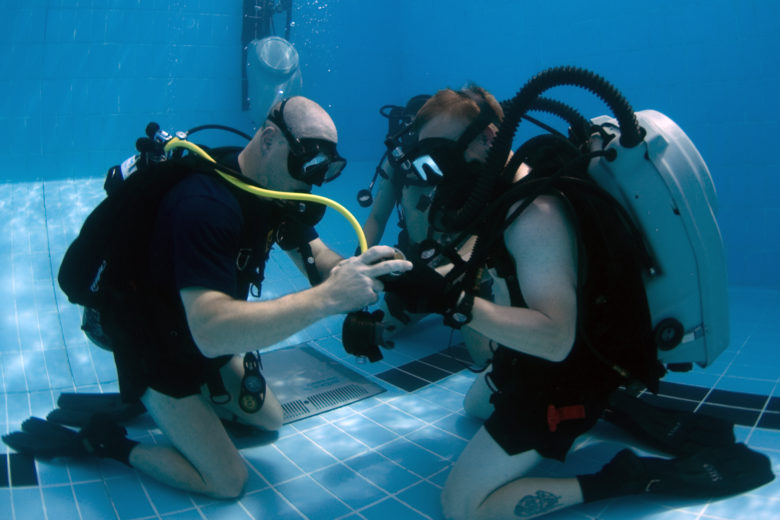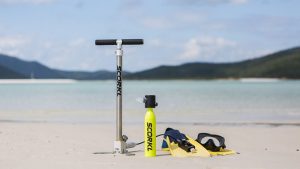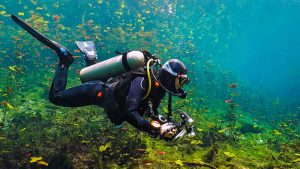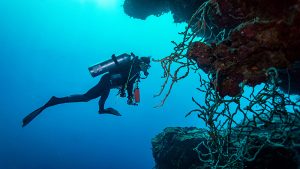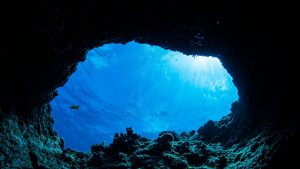Which is better between PADI vs NAUI?
To become a certified diver, you must first complete scuba diving training by a recognized diving organization/agency that has been allowed by the relevant authorities to certify successfully trained divers.
Such an organization will issue a certified diver with a certification card. This will become like a diving license or a proof of successful scuba training.
The certified diver the uses this card to rent any diving equipment from the diving shops. Among such organizations are PADI and NAUI.
PADI – Professional Association of Diving Instructors
PADI, a US-based agency, is so far the biggest and the most famous dive certification organization in the whole world. It has been offering various performance-based diving courses since 1966.
They have their centers widely spread throughout the globe. Over half of the diver’s population in the world have been trained and certified by PADI.
NAUI (National Association of Underwater Instructors)
NAUI is the oldest not-for-profit scuba certification organization, having started its operations in 1960 and it is also US-based. It has been promoting safe diving, through offering the relevant diving courses.
They offer diving courses that are very much alike to those offered by PADI, and so far it is the second biggest scuba certification agency, with PADI taking the first position.
Certification card
A diver certification card also commonly known as a C-card is a document that proves that its bearer has successfully completed a diving course or training. It is offered by the issuing agency or organization.
The C-card as earlier said acts as the license that proofs that you enrolled for diving training and you successfully completed the course, having gained the necessary diving skills and knowledge thus becoming a certified diver.
A diver certification card is issued by a recognized diving agency such as PADI or NAUI to divers who have gone through their training. They must have proven to acquire proper understanding and expertise in underwater diving.
Divers are supposed to carry their certification card with them. This is important to prove their diving qualification when checking into a diving centre or when renting any diving gear from a diving shop. Every diving centre or diving shop must verify a diver’s training level before either booking them in or before renting out any diving gear to them.
PADI and NAUI scuba certifications do not expire. However, most of the diving centers will ask a diver to produce evidence of recent diving. This includes things as recent dives in your scuba logbook before they can allow you to dive in their centers.
This means that if you are a certified diver, who has not been in the water for a while, or you have not dived for a while since you obtained your certification; it is recommended to go for diving refresher course before going in the water.
The refresher course will give you the confidence and fresh skill that you require to dive again.
PADI vs NAUI
There are differences and similarities as you will see in the upcoming sections. However, either is as good as the other. Thus, whichever you train with, at the end of the training, you will be a good diver.
PADI certification
If you are a scuba diving enthusiast or a water enthusiast, you are thrilled by the underwater life, and you dream of exploring the underwater world that you cannot experience through snorkeling; getting a PADI certification will give you a license to do so. This will happen after you enroll for their scuba diving lessons and you successfully complete them.
An example of such diving courses is the PADI open water certification, which is most common and basic PADI certification. This is because this course is the first diving certification training that you are supposed to enroll to certify fully as a diver, and which will qualify you for their advanced diving courses.
Qualification
Any person from the age of 15 years and above is qualified to take the PADI open water certification. In addition, depending on the country offering this training, there is a junior open-water course for kids of 10 to 12 years of age. The kids who are certified at the junior level are further upgraded to standard level when they attain the age of 15 years.
Apart from age, the general requirement for the PADI open water certification course is that you should be in a good state of health. You should not be suffering from any major health issues that can prevent you from diving safely.
Can you dive when you are sick? There are ways, because sometimes, you may fall sick many years after you trained for diving and earned your scuba diving certification.
Phases of the PADI open water certification course
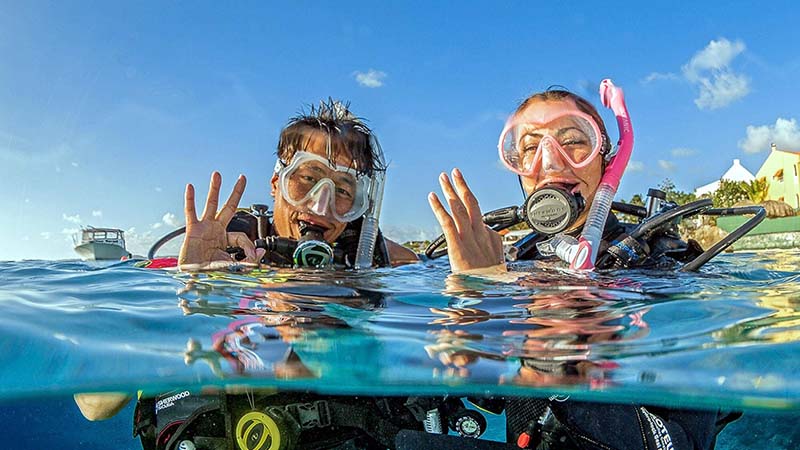
The PADI open water certification course requires a diver to gain knowledge and skills in three main phases.
Phase 1: Knowledge development
In this phase, you will learn the basic knowledge of scuba diving in theoretical form. You will get all the information from the diving equipment sellers and all the techniques and skills that you are required to use while under water.
A diver can either decide to either do the theoretical phase through attending classroom sessions or vial online e-learning option.
Phase 2: Practical Scuba Diving Confined Water Dives
In this phase, you are required to learn the basic scuba diving skills by doing a practical diving in confined waters such as a swimming pool with the help of an instructor. This phase furnishes you with the necessary skills that you need as an open water diver.
A diver will be taken through around 5 sessions that range from easier skills to more techniques that are much complicated even as the depth of the water goes deeper.
Phase 3: Open water dives
The third and last phase will take the diver to the actual open water diving such as in an ocean setting. The phase can take about 5 sessions or less depending on a diver’s performance. In this phase, a diver will be required to apply and demonstrate the techniques they learned during the previous confined water diving phase.
The phase will also help a diver build confidence and an instructor will accompany you under water until you are confident enough to dive on your own.
Once a diver is through with the above three phases of the open water certification course, they are supposed to take a final exam. The exam will test whether they have acquired the necessary skills and knowledge and if a diver passes the exam, then they qualify for the PADI certification and the agency will issue you with your C-card.
The entire PADI open water diver course takes about one week. After you a have undertaken this course, you qualify to dive 18 meters deep and you also qualify to enroll for more advanced diving courses such as deep diving, shark diving and shipwreck diving among others.
If you complete this course and you stay for a while before diving, it is recommended to enroll for refresher sessions, which will only take a couple of hours to remind you of the necessary diving techniques.
NAUI Certification
NAUI, which is the world’s biggest not-for-profit dive training organization, has for decades continued to train divers how to dive safely. Their courses are very detailed and that is why they have emerged among the top in offering this training.
NAUI offers different diving certifications according to the level of knowledge and skills acquired in each level.
Here is a summary of the extensive courses that they offer:
Scuba diving training
This is the first and entry level of diving. In this level, a diver will acquire the basic fundamental skills of open water diving. After a successful completion of this level, a diver acquires an open water certification that allows them to dive in any dive centre in the world.
Advanced scuba diving
This course enables a diver to acquire knowledge and skills of various types of diving such as night diving, deep diving or navigation diving.
Master scuba diving
This level is for divers who want to specialize in different diving techniques where they learn 8 different diving skills.
Technical diving
These course certifications mainly focus on deep diving and air mixing.
Specialty diving courses
These courses enable a diver to get a certification that allows them to engage in specialty dives without being supervised. These dives focus on skills such as night diving, search and recovery and wreck dives among others
Professional diving courses
These courses enable a diver to acquire teaching skills that can help them become assistant instructors, dive masters, instructor trainers or course instructors among others.
Main differences between PADI vs NAUI
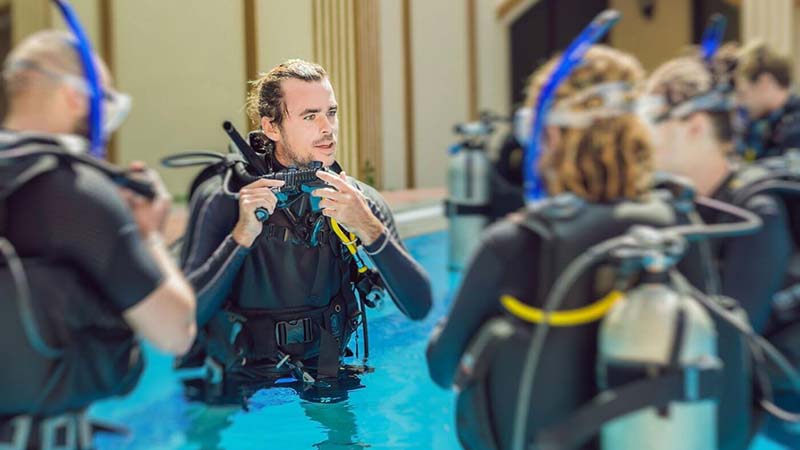
Once you have decided to become a diver, it is obvious that you must have a dive organization that can certify you so that you can dive anywhere in the world. While there are so many scuba agencies around the globe, it is prudent to choose a big and reputable agency such as PADI or NAUI.
Both PADI and NAUI are among the biggest dive agencies in the world offering diving knowledge and skills that will make you a pro in diving while at the same time ensuring that you do it safely.
PADI is however, the biggest dive agency in the world. It has trained so many divers all over the globe and it has dive shops nearly in very part of the world. They are a for-profit organization that earns their profit from marketing and selling their products.
NAUI on the other hand is a not-for profit diving agency that deeply focus on educating divers about safe diving, hence their motto “Dive safety through education”. They are the second largest dive agency in the world after PADI.
Get similar scuba diving skills
The two agencies teach similar skills both in theory and in practical, only that they differ in dive training philosophies. To train with any of the two, you have to find a trainer who offers diving training for any of the two certifications.
The basic diving certification that PADI offers is known as Open water diver while the basic certification that NAUI offers is known as Scuba Diver. For purposes of the practical diving, both certifications are considered to be equivalent.
This means that a person who desires to become a certified diver can acquire either of the two certifications and they will be allowed to dive anywhere in the world regardless of whether their C-card is from PADI or NAUI.
The only main difference between these certifications at this stage is that NAUI will train its divers the basic skills of saving an unconscious diver but PADI does not. Overall, most of the practical skills offered in PADI and NAUI courses are very similar.
PADI requires all off their instructors to follow the laid down programs while teaching any of their courses, while NAUI on the other side encourage their instructors to be quite flexible and go beyond the standard during their training.
In any case, your choice of a diver’s certification may be prompted by many things. One of them is the information that you have heard out there. For example, the idea that the US Navy uses NAUI certification may prompt many people to opt for it and not for PADI.
NAUI certification training requires a skin dive, but PADI does not. In addition, with PADI, you get certified as soon as you complete all the skills. However, with NAUI, you have to complete the skills first and then your trainer has to be satisfied that you are ready for the water, before they can certify you.
Apart from those few differences, there are really no differences to talk about. Whether you have PADI or NAUI certification, or any other certification for that matter, you are qualified.
The tussle for what is better between PADI and NAUI is more of a fight about “I went to Cornell, therefore I am better than guys who went to Princeton,” but really, training is training. Instead of choosing the certification itself, just choose a trainer because the skills impartation is what is important. Thus, if the trainer near you is PADI and is highly reviewed, go for that. If you find a NAUI trainer before a PADI trainer, go for that.
Scuba diving certification cost
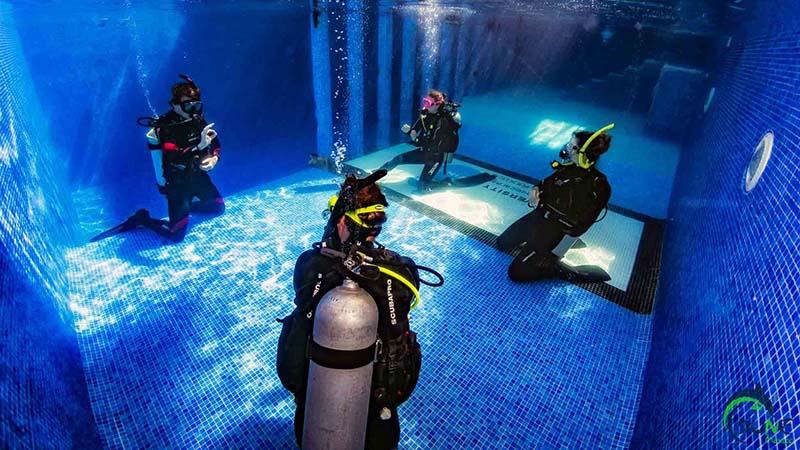
The cost of scuba diving certification tends to differ from one location and country to the other. However, in most parts of the world, a diver will pay a cost ranging between $350 and $ 500 in order to acquire scuba diving certification. This price is mostly inclusive of all the course materials and any rental scuba equipment.
Conclusion
I hope this has helped you answer the question of what is better between PADI vs NAUI and remember, when you go for group diving, you will all be a mix-up and really, when you look closely you will see that all types of certifications teach just about the same things. Remember, choose the trainer first, then go with what he/she offers instead of doing it the other way round. Whatever training you take, you will enjoy your scuba diving adventure so much, it will actually not matter anymore whether you are NAUI or PADI.
Here is a list of scuba equipment that you may want to buy after training:
CAPAS 2mm Neoprene Socks for snorkeling and diving
O’Neill Men’s Epic 4/3mm Back Zip Full Wetsuit
Phantom Aquatics Men’s Marine Shorty Wetsuit
